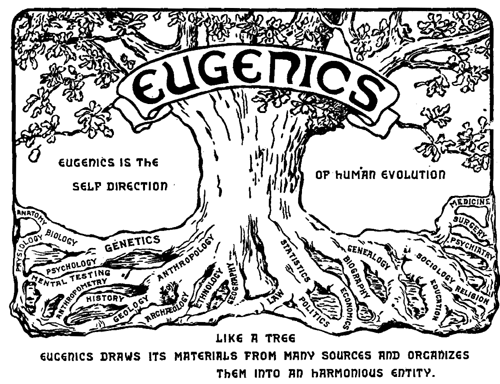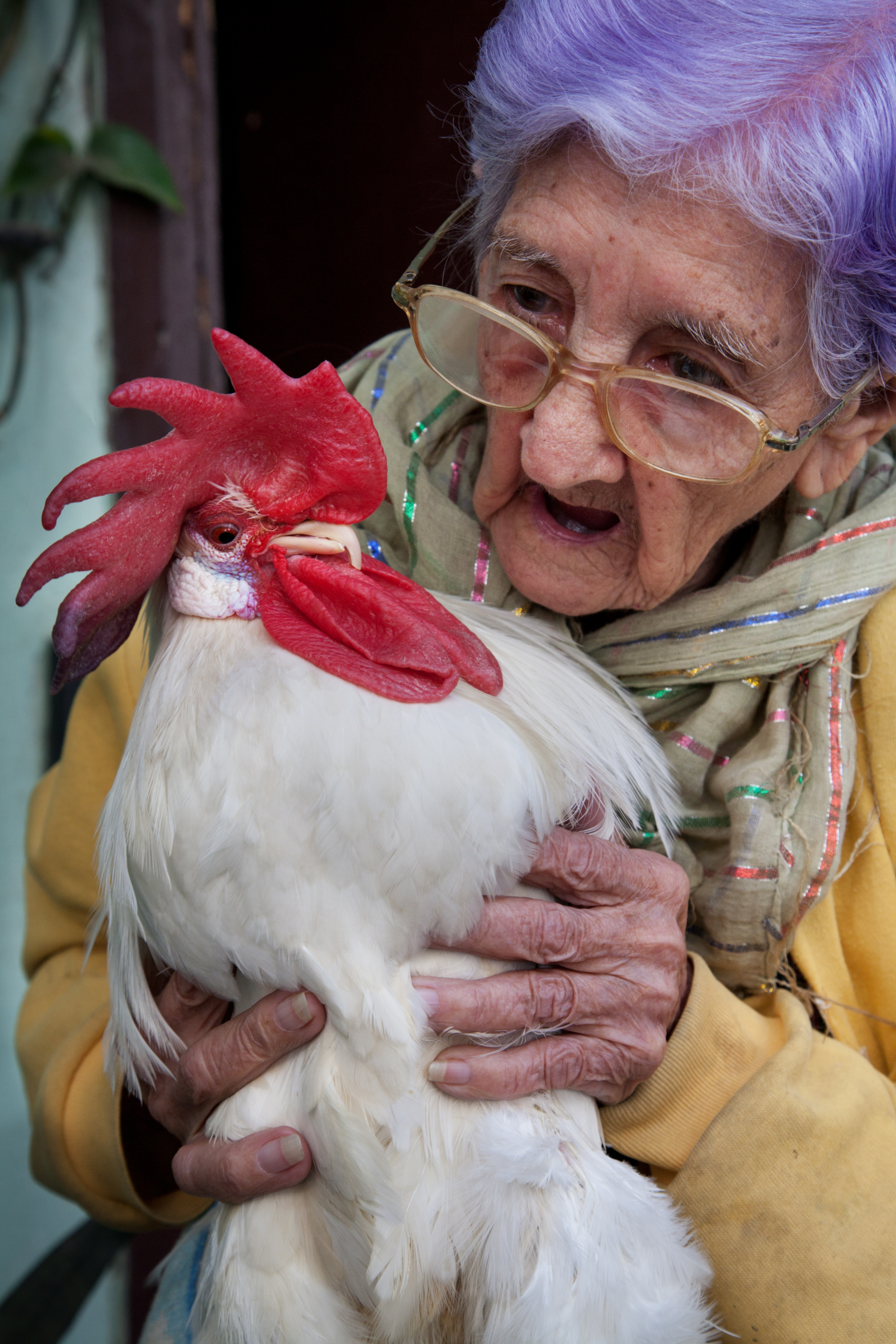|
Dysgenics
Dysgenics (also known as cacogenics) is the decrease in prevalence of traits deemed to be either socially desirable or well adapted to their environment due to selective pressure disfavoring the reproduction of those traits. The adjective "dysgenic" is the antonym of " eugenic". In 1915 the term was used by David Starr Jordan to describe the supposed deleterious effects of modern warfare on group-level genetic fitness because of its tendency to kill physically healthy men while preserving the disabled at home. Similar concerns had been raised by early eugenicists and social Darwinists during the 19th century, and continued to play a role in scientific and public policy debates throughout the 20th century. More recent concerns about supposed dysgenic effects in human populations have been advanced by the controversial psychologist Richard Lynn, notably in his 1996 book '' Dysgenics: Genetic Deterioration in Modern Populations'', which argued that a reduction in selection pressures ... [...More Info...] [...Related Items...] OR: [Wikipedia] [Google] [Baidu] |
Richard Lynn
Richard Lynn (born 20 February 1930) is a controversial English psychologist and author. He is a former professor emeritus of psychology at Ulster University, having had the title withdrawn by the university in 2018. He is former assistant editor and current editor-in-chief of the journal ''Mankind Quarterly'', which is commonly described as a white supremacist journal and purveyor of scientific racism. Lynn studies intelligence and is known for his belief in sexual and racial differences in intelligence. Lynn was educated at King's College, Cambridge, in England. He has worked as lecturer in psychology at the University of Exeter and as professor of psychology at the Economic and Social Research Institute, Dublin, and at the University of Ulster at Coleraine. Many scientists have criticised Lynn's work on racial and national differences in intelligence for lacking scientific rigour, misrepresenting data, and for promoting a racialist political agenda. A number of scholars ... [...More Info...] [...Related Items...] OR: [Wikipedia] [Google] [Baidu] |
List Of Biological Development Disorders
References Bibliography * Reece JB, Urry LA, Cain ML, Wasserman SA, Minorsky PV, Jackson RB. Campbell Biology (10th ed.). Addison Wesley Longman; 2014. {{DEFAULTSORT:Biological development disorders Lists of diseases Disability-related lists Biological nomenclature Medical terminology Lists of biology lists ... [...More Info...] [...Related Items...] OR: [Wikipedia] [Google] [Baidu] |
Eugenic
Eugenics ( ; ) is a fringe set of beliefs and practices that aim to improve the genetic quality of a human population. Historically, eugenicists have attempted to alter human gene pools by excluding people and groups judged to be inferior or promoting those judged to be superior. In recent years, the term has seen a revival in bioethical discussions on the usage of new technologies such as CRISPR and genetic screening, with a heated debate on whether these technologies should be called eugenics or not. The concept predates the term; Plato suggested applying the principles of selective breeding to humans around 400 BC. Early advocates of eugenics in the 19th century regarded it as a way of improving groups of people. In contemporary usage, the term ''eugenics'' is closely associated with scientific racism. Modern bioethicists who advocate new eugenics characterize it as a way of enhancing individual traits, regardless of group membership. While eugenic principles have be ... [...More Info...] [...Related Items...] OR: [Wikipedia] [Google] [Baidu] |
The Marching Morons
"The Marching Morons" is a science fiction story by American writer Cyril M. Kornbluth, originally published in '' Galaxy'' in April 1951. It was included in ''The Science Fiction Hall of Fame, Volume Two'' after being voted one of the best novellas up to 1965. Background In the "Introduction" to '' The Best of C. M. Kornbluth'', Frederik Pohl (Kornbluth's friend and collaborator) explains some of the inspiration to "The Marching Morons". The work was written after Pohl suggested that Kornbluth write a follow-up story that focuses on the future presented in the short story "The Little Black Bag". In contrast to the "little black bag" arriving in the past from the future, Kornbluth wanted to write about a man arriving in the future from the past. To explain sending a man to the future, Kornbluth borrowed from David Butler's 1930 science fiction film, '' Just Imagine'', in which a man is struck by lightning, trapped in suspended animation, and reanimated in the future. In "The M ... [...More Info...] [...Related Items...] OR: [Wikipedia] [Google] [Baidu] |
Eugenics
Eugenics ( ; ) is a fringe set of beliefs and practices that aim to improve the genetic quality of a human population. Historically, eugenicists have attempted to alter human gene pools by excluding people and groups judged to be inferior or promoting those judged to be superior. In recent years, the term has seen a revival in bioethical discussions on the usage of new technologies such as CRISPR and genetic screening, with a heated debate on whether these technologies should be called eugenics or not. The concept predates the term; Plato suggested applying the principles of selective breeding to humans around 400 BC. Early advocates of eugenics in the 19th century regarded it as a way of improving groups of people. In contemporary usage, the term ''eugenics'' is closely associated with scientific racism. Modern bioethicists who advocate new eugenics characterize it as a way of enhancing individual traits, regardless of group membership. While eugenic principles h ... [...More Info...] [...Related Items...] OR: [Wikipedia] [Google] [Baidu] |
Idiocracy
''Idiocracy'' is a 2006 American science fiction comedy film directed by Mike Judge and co-written by Judge and Etan Cohen. Starring Luke Wilson, Maya Rudolph, Dax Shepard, and Terry Crews, the film tells the story of Corporal Joe Bauers (Wilson), a U.S. Army librarian who, along with prostitute Rita (Rudolph), takes part in a government hibernation experiment. The experiment goes awry, and Joe awakens in the year 2505, in a dystopian world dumbed-down by mass commercialism, rampant anti-intellectualism and the domination of low culture, to find that he is by far the smartest person on the planet. ''Idiocracy'' serves as a social satire that touches on issues including commercialism and anti-intellectualism. The film was not screened for critics, and the distributor, 20th Century Fox, was accused of abandoning it. Despite its lack of a major theatrical release, which resulted in a mere $495,000 gross at the box office, the film received positive reviews from critics an ... [...More Info...] [...Related Items...] OR: [Wikipedia] [Google] [Baidu] |
List Of Congenital Disorders
List of congenital disorders {{TOC right Numerical * 5p syndrome - see Cri du chat syndrome A * Albinism * Amelia and hemimelia * Amniotic band syndrome * Anencephaly * Angelman syndrome * Aposthia * Arnold–Chiari malformation B * Bannayan–Zonana syndrome * Bardet–Biedl syndrome * Barth syndrome * Basal-cell nevus syndrome * Beckwith–Wiedemann syndrome * Benjamin syndrome * Bladder exstrophy * Bloom syndrome * Brachydactyly * Breathing Genitalia C * Cat eye syndrome * Caudal regression syndrome * Sotos syndrome Cerebral Gigantism * CHARGE syndrome * Chromosome 16 abnormalities * Chromosome 18 abnormalities * Chromosome 20 abnormalities * Chromosome 22 abnormalities * Cleft lip/palate * Cleidocranial dysostosis * Club foot * Congenital adrenal hyperplasia (CAH) * Congenital central hypoventilation syndrome * Congenital diaphragmatic hernia (CDH) * Congenital Disorder of Glycosylation (CDG) * Congenital hyperinsulinism * Congenital insensitiv ... [...More Info...] [...Related Items...] OR: [Wikipedia] [Google] [Baidu] |
Heritability Of IQ
Research on the heritability of IQ inquires into the degree of variation in IQ within a population that is due to genetic variation between individuals in that population. There has been significant controversy in the academic community about the heritability of IQ since research on the issue began in the late nineteenth century. Intelligence in the normal range is a polygenic trait, meaning that it is influenced by more than one gene, and in the case of intelligence at least 500 genes. Further, explaining the similarity in IQ of closely related persons requires careful study because environmental factors may be correlated with genetic factors. Early twin studies of adult individuals have found a heritability of IQ between 57% and 73%, with some recent studies showing heritability for IQ as high as 80%. IQ goes from being weakly correlated with genetics for children, to being strongly correlated with genetics for late teens and adults. The heritability of IQ increases with the ch ... [...More Info...] [...Related Items...] OR: [Wikipedia] [Google] [Baidu] |
Flynn Effect
The Flynn effect is the substantial and long-sustained increase in both fluid and crystallized intelligence test scores that were measured in many parts of the world over the 20th century. When intelligence quotient (IQ) tests are initially standardized using a sample of test-takers, by convention the average of the test results is set to 100 and their standard deviation is set to 15 or 16 IQ points. When IQ tests are revised, they are again standardized using a new sample of test-takers, usually born more recently than the first; the average result is set to 100. When the new test subjects take the older tests, in almost every case their average scores are significantly above 100. Test score increases have been continuous and approximately linear from the earliest years of testing to the present. For example, a study published in the year 2009 found that British children's average scores on the Raven's Progressive Matrices test rose by 14 IQ points from 1942 to 2008. Similar g ... [...More Info...] [...Related Items...] OR: [Wikipedia] [Google] [Baidu] |
Devolution (biology)
Devolution, de-evolution, or backward evolution (not to be confused with dysgenics) is the notion that species can revert to supposedly more primitive forms over time. The concept relates to the idea that evolution has a purpose (teleology) and is progressive (orthogenesis), for example that feet might be better than hooves or lungs than gills. However, evolutionary biology makes no such assumptions, and natural selection shapes adaptations with no foreknowledge of any kind. It is possible for small changes (such as in the frequency of a single gene) to be reversed by chance or selection, but this is no different from the normal course of evolution and as such de-evolution is not compatible with a proper understanding of evolution due to natural selection. In the 19th century, when belief in orthogenesis was widespread, zoologists (such as Ray Lankester and Anton Dohrn) and the palaeontologists Alpheus Hyatt and Carl H. Eigenmann advocated the idea of devolution. The concept appe ... [...More Info...] [...Related Items...] OR: [Wikipedia] [Google] [Baidu] |
Expert System
In artificial intelligence, an expert system is a computer system emulating the decision-making ability of a human expert. Expert systems are designed to solve complex problems by reasoning through bodies of knowledge, represented mainly as if–then rules rather than through conventional procedural code. The first expert systems were created in the 1970s and then proliferated in the 1980s. Expert systems were among the first truly successful forms of artificial intelligence (AI) software. An expert system is divided into two subsystems: the inference engine and the knowledge base. The knowledge base represents facts and rules. The inference engine applies the rules to the known facts to deduce new facts. Inference engines can also include explanation and debugging abilities. History Early development Soon after the dawn of modern computers in the late 1940s and early 1950s, researchers started realizing the immense potential these machines had for modern society. One ... [...More Info...] [...Related Items...] OR: [Wikipedia] [Google] [Baidu] |
Voluntary Childlessness
Voluntary childlessness, also called being childfree, describes the voluntary choice to not have children. In most societies and for most of human history, choosing not to have children was both difficult and undesirable. The availability of reliable contraception along with support provided in old age by one's government rather than one's family has made childlessness an option for some people, though they may be looked down upon in certain communities. According to the Merriam-Webster Dictionary, the word "childfree" first appeared sometime before 1901, and was described as a 'trend' in 2014 in ''Psychology Today'' online magazine. The meaning of the term "childfree" extends to encompass the children of others (in addition to one's own children) and this distinguishes it further from the more usual term "childless", which is traditionally used to express the idea of having no children, whether by choice or by circumstance. The term "child free" has been cited in Australian li ... [...More Info...] [...Related Items...] OR: [Wikipedia] [Google] [Baidu] |




